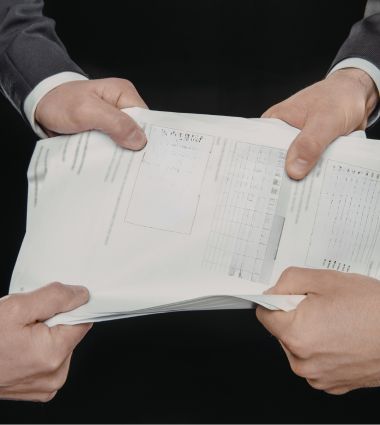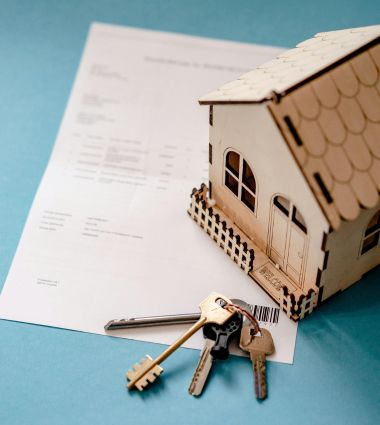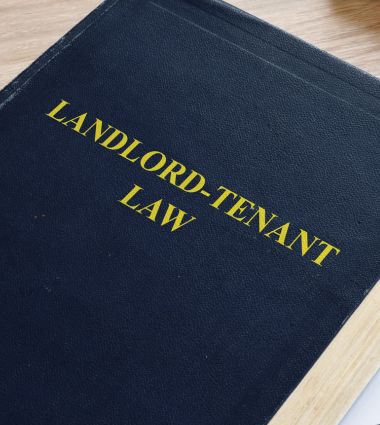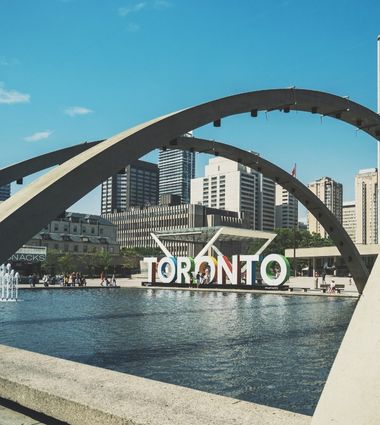Do You Need a House Deed in Ontario to Sell a House?
Selling a house in Ontario can be complex for you, especially when it comes to understanding the required documentation. Many homeowners wonder if a house deed is needed to complete the sale. Just like in other areas, it's crucial to have the right documentation of property ownership in Ontario.
You likely have many questions, such as: Do you need a house deed in Ontario to sell a house? What documentation is required when transferring property ownership? How long will the process take?
This article provides answers to these common questions for Ontario home sellers. We explain the purpose of a property deed, whether it's required for selling your home, and how to obtain deed copies.
You'll learn the step-by-step process for completing a residential property sale and transfer of ownership legally and smoothly. With the right information, you can sell your Ontario house with confidence.
What Is a House Deed?
.jpg)
A house deed, also known as a property deed or land deed, is a legal document that transfers the ownership of real estate from one party to another. In Ontario, a deed is required to legally sell a residential property. When purchasing a home, the seller will transfer the deed to the buyer, giving them ownership rights to the property.
Registering the Deed
A deed once signed by the seller has to be recorded in the Land Registry Office of the respective county where the property is located. Registration pays the Land Transfer Tax and updates government records to show the change in ownership. The buyer’s name will appear on the new Certificate of Title for the property. Not being able to register a deed means that the buyer does not have legal ownership of the house.
Using a Lawyer
Transferring property in Ontario is a complex legal process. Most buyers and sellers hire a professional real estate lawyer to handle preparing and registering the deed, as well as other documents like property disclosure statements and closing statements.
The best real estate lawyer can make sure the transaction is handled properly and follows the province's real estate laws. For the legal transfer of a house, a deed is an absolute necessity in Ontario.
Do You Legally Need a House Deed in Ontario to Sell a House?
In short, to legally sell your house in Ontario, you will need to provide the property deed. The property deed, also known as the title deed, is the legal document that proves you own the home.
The Importance of the Property Deed
The deed passes ownership from the seller to the buyer when an individual sells a house. This simply means that in the eyes of the law, a purchaser is not the rightful owner of the property in question if he does not possess a deed. In Ontario, real estate or property purchase transactions are finalized by lawyers or notaries who procure the deed on behalf of the buyer.
How Property Deeds Work in Ontario Real Estate Transactions
In Ontario, most residential properties have a "registered" deed, meaning the deed is recorded in the local land registry office. The land registry maintains records of property ownership and deeds. When a house is sold, the seller's lawyer will prepare a new deed transferring ownership to the buyer.
On closing day, the lawyers will meet to exchange closing documents, including the new deed. The buyer's lawyer will then register the new deed with the land registry to legally record the change in ownership. Once registered, the buyer officially owns the property.
Why You Need a Lawyer to Transfer the Deed
The only people who are legally allowed to transfer property in Ontario are lawyers and notaries. As a seller, you cannot just hand over the deed to the buyer on the spot. The lawyers ensure that the legal transfer is well executed in conformity with the other legal procedures. They also help to safeguard the self-interest of both the buyers and the sellers during the transaction process.
To legally sell your house in Ontario, you have to present a property deed to complete the process of transferring the property ownership to the buyer on the closing. A competent real estate lawyer is needed to formally transfer and register the new deed. Any real estate transaction cannot be processed in Ontario if legal procedures are not followed.
Types of House Deeds in Ontario
Ontario has two primary types of house deeds:
Joint Tenancy
Joint tenancy involves two or more people owning a property together, often married spouses, with the right of survivorship. This means that any share in the property owned by one owner will automatically be taken over by the surviving owner or owners on the death of the former.
Joint tenancy allows the surviving owner to gain full control and ownership of the property after the other owner dies. To establish joint tenancy, the deed must expressly state that the owners take the property as “joint tenants with right of survivorship” or “JTWROS”.
Tenants in Common
Tenants in common is another common way for two or more people to own a property together in Ontario. Unlike joint tenancy, there are no survivorship rights with tenants in common. Each owner has a distinct share of the property which they can sell or bequeath as they choose.
Tenants in common allows for more flexibility as each owner's share may be sold or transferred separately. The shares of ownership do not have to be equal, and there are no restrictions on who the owners can sell or transfer their shares to.
Registered Ownership
Registered ownership means that one person's name is listed on the property's title or deed as the sole owner. The registered owner has full control and rights over the property and is responsible for all obligations like property taxes. When a property is sold in Ontario, the registered owner's name on the title must be discharged and the buyer's name registered as the new owner.
The two most common types of house deeds in Ontario are joint tenancy and tenants in common. The joint tenancy provides automatic right of survivorship for owners, usually spouses, while tenants in common give each owner more flexibility and control over their distinct share of the property.
Registered ownership is when only one person's name appears on the property's title. Understanding the differences between these deed types will help you determine how to properly register ownership or transfer property in Ontario.
Transfer of Title in Ontario
Transferring the title of a property in Ontario involves several legal steps to ensure a smooth and valid transaction.
Electronic Transfer of Title with a Lawyer
To sell a house in Ontario, the legal transfer of title from the seller to the buyer must be handled by a real estate lawyer. The lawyer will conduct a title search to verify the seller’s ownership and check for any encumbrances on the property like liens or mortgages. They will then draft the documents required for the title transfer, including the transfer and mortgage discharges.
Paperless Property Transfer
With the Land Titles Conversion Qualification Program, Ontario property titles have been converted into an electronic format. This means real estate lawyers can now transfer property titles electronically through Teranet, Ontario’s official land registration system.
The closing procedure is accelerated by the electronic transfer of the title, which takes minutes as opposed to days. Lawyers are still required to draft the necessary paperwork and do the appropriate legal due diligence. The electronic system simply allows for a faster, more efficient transfer and registration of the title.
Legal Safeguards to Protect Buyers
Property titles in Ontario can only be transferred by lawyers. This requirement provides legal protection and security for both buyers and sellers in the real estate transaction. Lawyers are regulated professionals who possess the necessary knowledge and experience to transfer titles correctly and assist clients with the legal elements of purchasing or selling a home.
They ensure all documentation is prepared accurately and follows Ontario laws. Using a lawyer to transfer the title gives buyers confidence that the sale is legitimate and they will receive proper legal title to the property.
Without a lawyer to legally transfer the title, a seller cannot complete a sale of the house. While the title transfer process in Ontario is efficient with electronic registration, it still requires the expertise of a real estate lawyer to protect buyers, sellers, and the integrity of the province's land title system. Following the proper legal process for transferring title provides security and peace of mind for all parties in a real estate transaction.
What to Do if You've Lost Your House Deed in Ontario

If you have misplaced or lost the deed to your Ontario property, do not panic. There are several actions you can take to obtain an official copy of your deed.
Search the Online Land Registry
The Ontario Land Registry maintains electronic records of all registered property deeds in the province. You can perform an online search of the registry to locate an electronic copy of your deed. The search can be completed through a lawyer, or land surveyor, or by submitting an online request yourself for a fee. Once located, an official copy of the deed can be obtained for a nominal charge.
Visit Your Local Land Registry Office
Alternatively, you can pick up an official copy of your property deed by going in person to your local Ontario land register office. To identify the property, you will need to supply details such as the address, roll number, or legal description.
A copy of the deed will be available for an administrative fee; this fee usually ranges from $50 to $100. The land registry office can provide certified true copies of the deed for your records.
Work with a Lawyer or Title Searcher
It could be beneficial to hire a real estate lawyer or expert title searcher in Ontario to find your deed, particularly if the property documents are complex. They are skilled in quickly locating the most recent copy of your deed by searching the land titles database and online land registry.
They can then obtain certified copies of the deed on your behalf for a fee, typically a few hundred dollars. Working with a legal professional provides peace of mind that the proper records have been obtained.
With the land registry system in Ontario, there are multiple ways to locate and obtain an official copy of your property deed if the original has been lost. Performing a search of the online records yourself, visiting your local land registry office, or hiring a legal professional to conduct the search are all viable options to get a replacement copy of this important document.
Having the property deed in hand can ease your mind and speed up several processes in the home-selling process when selling your house in Ontario. While it is not an absolute requirement, taking the time to locate your deed can help avoid delays or complications when providing proof of ownership.
With the critical information your deed contains, you’ll be fully prepared to go through the sale smoothly from start to finish. Taking this proactive measure allows you to check one more box on your pre-sale checklist.
Real Estate
Family Law
Wills & Estates
Immigration
Join Our Mailing List.
Sign up with your email to receive our newsletter and stay informed about the latest legal developments and special offers.



















































































